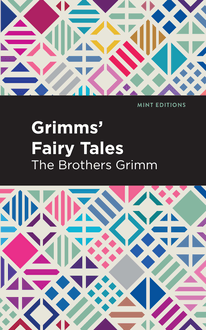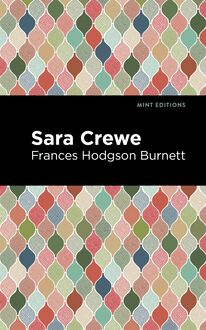-
 Univers
Univers
-
 Ebooks
Ebooks
-
 Livres audio
Livres audio
-
 Presse
Presse
-
 Podcasts
Podcasts
-
 BD
BD
-
 Documents
Documents
-
- Cours
- Révisions
- Ressources pédagogiques
- Sciences de l’éducation
- Manuels scolaires
- Langues
- Travaux de classe
- Annales de BEP
- Etudes supérieures
- Maternelle et primaire
- Fiches de lecture
- Orientation scolaire
- Méthodologie
- Corrigés de devoir
- Annales d’examens et concours
- Annales du bac
- Annales du brevet
- Rapports de stage
La lecture à portée de main
Vous pourrez modifier la taille du texte de cet ouvrage
Découvre YouScribe en t'inscrivant gratuitement
Je m'inscrisDécouvre YouScribe en t'inscrivant gratuitement
Je m'inscrisEn savoir plus
Vous pourrez modifier la taille du texte de cet ouvrage
En savoir plus

Description
The young Jeanne and her cousin Hugh are drawn to a special room decorated with eye-catching tapestry that pulls the children into a mystical world. The Tapestry Room: A Child’s Romance is a fun and accessible tale about family and friendship.
Jeanne is a young girl who lives in a large old house. Despite its size, she’s often captivated by one room located down the hall. It is covered with tapestry and feels different from every other space. With the arrival of her younger cousin Hugh, she finally decides to explore the room with the fanciful designs. The pair quickly realize their home is more than meets the eye. They embark on a magical adventure that includes enchanted creatures and striking visuals.
The Tapestry Room: A Child’s Romance was published more than a hundred years ago but maintains its flair for childlike fancy. It’s an exciting tale about two inquisitive kids who discover a different world. This is just one of Moleworth’s many entries in the popular children’s genre.
With an eye-catching new cover, and professionally typeset manuscript, this edition of The Tapestry Room: A Child’s Romance is both modern and readable.
Sujets
Informations
| Publié par | Mint Editions |
| Date de parution | 02 mars 2021 |
| Nombre de lectures | 0 |
| EAN13 | 9781513277233 |
| Langue | English |
| Poids de l'ouvrage | 4 Mo |
Informations légales : prix de location à la page 0,0400€. Cette information est donnée uniquement à titre indicatif conformément à la législation en vigueur.
Extrait
The Tapestry Room
A Child’s Romance
Mrs. Molesworth
The Tapestry Room: A Child’s Romance was first published in 1879.
This edition published by Mint Editions 2020.
ISBN 9781513272238 | E-ISBN 9781513277233
Published by Mint Editions®
minteditionbooks.com
Publishing Director: Jennifer Newens
Design & Production: Rachel Lopez Metzger
Project Manager: Micaela Clark
Typesetting: Westchester Publishing Services
C ONTENTS I. M ADEMOISELLE J EANNE II. P RINCE C HÉRI III. O N A M OONLIGHT N IGHT IV. T HE F OREST OF THE R AINBOWS V. F ROG -L AND VI. T HE S ONG OF THE S WAN VII. W INGS AND C ATS VIII. “T HE B ROWN B ULL OF N ORROWA ” IX. T HE B ROWN B ULL —( C ONTINUED ) X. T HE E ND OF THE B ROWN B ULL XI. D UDU ’ S O LD S TORY XII. A U R EVOIR
I
M ADEMOISELLE J EANNE
“Maitre Corbeau, sur un arbre perché.”
—L A F ONTAINE
I t was so cold. Ah, so very cold! So thought the old raven as he hobbled up and down the terrace walk at the back of the house—the walk that was so pleasant in summer, with its pretty view of the lower garden, gay with the bright, stiffly-arranged flowerbeds, so pleasantly warm and yet shady with the old trees overhead, where the raven’s second cousins, the rooks, managed their affairs, not without a good deal of chatter about it, it must be confessed. “Silly creatures,” the raven was in the habit of calling them with contempt—all to himself, of course, for no one understood the different tones of his croaking, even though he was a French raven and had received the best of educations. But to-day he was too depressed in spirit by the cold to think of his relations or their behaviour at all. He just hopped or hobbled—I hardly know which you would call it—slowly and solemnly up and down the long walk, where the snow lay so thick that at each hop it came ever so far up his black claws, which annoyed him very much, I assure you, and made him wish more than ever that summer was back again.
Poor old fellow! he was not usually of a discontented disposition; but to-day, it must be allowed, he was in the right about the cold. It was very cold.
Several others beside the raven were thinking so—the three chickens who lived in a queer little house in one corner of the yard thought so, and huddled the closer together, as they settled themselves for the night. For though it was only half-past three in the afternoon, they thought it was no use sitting up any longer on such a make-believe of a day, when not the least little ray of sunshine had succeeded in creeping through the leaden-grey sky. And the tortoise would have thought so too if he could, but he was too sleepy to think at all, as he “cruddled” himself into his shell in the corner of the laurel hedge, and dreamt of the nice hot days that were past.
And upstairs, inside the old house, somebody else was thinking so too—a little somebody who seemed to be doing her best to make herself, particularly her nose, colder still, for she was pressing it hard on to the icy window-pane and staring out on to the deserted, snow-covered garden, and thinking how cold it was, and wishing it was summer time again, and fancying how it would feel to be a raven like old “Dudu,” all at once, in the mixed-up, dancing-about way that “thinking” was generally done in the funny little brain of Mademoiselle Jeanne.
Inside the room it was getting dark, and the white snow outside seemed to make it darker.
“Mademoiselle Jeanne,” said a voice belonging to a servant who just then opened the door; “Mademoiselle Jeanne, what are you doing at the window? You will catch cold.”
Jeanne gave a little start when she heard herself spoken to. She had been all alone in the room for some time, with not a sound about her. She turned slowly from the window and came near the fire.
“If I did catch cold, it would not be bad,” she said. “I would stay in bed, and you, Marcelline, would make me nice things to eat, and nobody would say, ‘Don’t do that, Mademoiselle.’ It would be charming.”
Marcelline was Jeanne’s old nurse, and she had been her mother’s nurse too. She was really rather old, how old nobody seemed exactly to know, but Jeanne thought her very old, and asked her once if she had not been her grandmother’s nurse too. Any one else but Marcelline would have been offended at such a question; but Marcelline was not like any one else, and she never was offended at anything. She was so old that for many years no one had seen much difference in her—she had reached a sort of settled oldness, like an arm-chair which may once have been covered with bright-coloured silk, but which, with time and wear, has got to have an all-over-old look which never seems to get any worse. Not that Marcelline was dull or grey to look at—she was bright and cheery, and when she had a new clean cap on, all beautifully frilled and crimped round her face, Jeanne used to tell her that she was beautiful, quite beautiful, and that if she was very good and always did exactly what Jeanne asked her, she—Jeanne—would have her to be nurse to her children when she had grown up to be a lady, married to some very nice gentleman.
And when Jeanne chattered like that, Marcelline used to smile; she never said anything, she just smiled. Sometimes Jeanne liked to see her smile; sometimes it would make her impatient, and she would say, “Why do you smile like that, Marcelline? Speak! When I speak I like you to speak too.”
But all she could get Marcelline to answer would be, “Well, Mademoiselle, it is very well what you say.”
This evening—or perhaps I should say afternoon, for whatever hour the chickens’ timepiece made it, it was only half-past three by the great big clock that stood at the end of the long passage by Jeanne’s room door;—this afternoon Jeanne was not quite as lively as she sometimes was. She sat down on the floor in front of the fire and stared into it. It was pretty to look at just then, for the wood was burning redly, and at the tiniest touch a whole bevy of lovely sparks would fly out like bees from a hive, or a covey of birds, or better still, like a thousand imprisoned fairies escaping at some magic touch. Of all things, Jeanne loved to give this magic touch. There was no poker, but she managed just as well with a stick of unburnt wood, or sometimes, when she was quite sure Marcelline was not looking, with the toe of her little shoe. Just now it was Marcelline who set the fairy sparks free by moving the logs a little and putting on a fresh one behind.
“How pretty they are, are they not, Marcelline?” said Jeanne.
Marcelline did not speak, and when Jeanne looked up at her, she saw by the light of the fire that she was smiling. Jeanne held up her forefinger.
“Naughty Marcelline,” she said; “you are not to smile. You are to speak . I want you to speak very much, for it is so dull, and I have nothing to do. I want you to tell me stories, Marcelline. Do you hear, you naughty little thing?”
“And what am I to tell you stories about then, Mademoiselle? You have got all out of my old head long ago; and when the grain is all ground what can the miller do?”
“Get some more, of course,” said Jeanne. “Why, I could make stories if I tried, I daresay, and I am only seven, and you who are a hundred—are you quite a hundred, Marcelline?”
Marcelline shook her head.
“Not quite , Mademoiselle,” she said.
“Well, never mind, you are old enough to make stories, any way. Tell me more about the country where you lived when you were little as I; the country you will never tell me the name of. Oh, I do like that one about the Golden Princess shut up in the castle by the sea! I like stories about princesses best of all. I do wish I were a princess; next to my best wish of all, I wish to be a princess. Marcelline, do you hear? I want you to tell me a story.”
Still Marcelline did not reply. She in her turn was looking into the fire. Suddenly she spoke.
“One, two, three,” she said. “Quick, now, Mademoiselle, quick, quick. Wish a wish before that last spark is gone. Quick, Mademoiselle.”
“Oh dear, what shall I wish?” exclaimed Jeanne. “When you tell me to be quick it all goes out of my head; but I know now. I wish—”
“Hush, Mademoiselle,” said Marcelline, quickly again. “You must not say it aloud. Never mind, it is all right. You have wished it before the spark is gone. It will come true, Mademoiselle.”
Jeanne’s bright dark eyes glanced up at Marcelline with an expression of mingled curiosity and respect.
“How do you know it will come true?” she said.
Marcelline’s old eyes, nearly as bright and dark still as Jeanne’s own, had a half-mischievous look in them as she replied, solemnly shaking her head,
“I know, Mademoiselle, and that is all I can say. And when the time comes for your wish to be granted, you will see if I am not right.”
“Shall I?” said Jeanne, half impressed, half rebellious. “Do the fairies tell you things, Marcelline? Not that I believe there are any fairies—not now, any way.”
“Don’t say that, Mademoiselle,” said Marcelline. “In that country I have told you of no one ever said such a thing as that.”
“Why didn’t they? Did they really see fairies there?” asked Jeanne, lowering her voice a little.
“Perhaps,” said Marcelline; but that was all she would say, and Jeanne couldn’t get her to tell her any fairy stories, and had to content herself with making them for herself instead out of the queer shapes of the burning wood of the fire.
She was so busy with these fancies that she did not hear the stopping of the click-click of Marcelline’s knitting needles, nor did she hear the old nurse get up from her chair and go out of the room. A few minutes before, the facteur had rung at the great wooden gates of the courtyard—a rather rare event, for in those days letters came only twice a week—but this, too, little Jeanne had not heard. She must have grown drowsy with the quiet and the heat of the fire, for she quite started when the door again opened, and Marcelline’s voice told her that her mothe
-
 Univers
Univers
-
 Ebooks
Ebooks
-
 Livres audio
Livres audio
-
 Presse
Presse
-
 Podcasts
Podcasts
-
 BD
BD
-
 Documents
Documents
-
Jeunesse
-
Littérature
-
Ressources professionnelles
-
Santé et bien-être
-
Savoirs
-
Education
-
Loisirs et hobbies
-
Art, musique et cinéma
-
Actualité et débat de société
-
Jeunesse
-
Littérature
-
Ressources professionnelles
-
Santé et bien-être
-
Savoirs
-
Education
-
Loisirs et hobbies
-
Art, musique et cinéma
-
Actualité et débat de société
-
Actualités
-
Lifestyle
-
Presse jeunesse
-
Presse professionnelle
-
Pratique
-
Presse sportive
-
Presse internationale
-
Culture & Médias
-
Action et Aventures
-
Science-fiction et Fantasy
-
Société
-
Jeunesse
-
Littérature
-
Ressources professionnelles
-
Santé et bien-être
-
Savoirs
-
Education
-
Loisirs et hobbies
-
Art, musique et cinéma
-
Actualité et débat de société
- Cours
- Révisions
- Ressources pédagogiques
- Sciences de l’éducation
- Manuels scolaires
- Langues
- Travaux de classe
- Annales de BEP
- Etudes supérieures
- Maternelle et primaire
- Fiches de lecture
- Orientation scolaire
- Méthodologie
- Corrigés de devoir
- Annales d’examens et concours
- Annales du bac
- Annales du brevet
- Rapports de stage




















